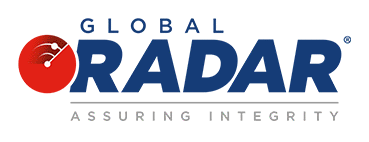Sky Global Inc., one of North America’s premier encrypted communications network and service providers, has effectively shut down following a recent indictment in a United States federal court for the company’s role in assisting the facilitation of international criminal organizations in laundering significant sums of money. A Vancouver-based firm that describes itself as a software solutions company that prioritizes the “human right to privacy” established itself as a staple in this niche given that their products provide individuals with easy to use tools that secure conversations and ensure improved data security for individuals and entities alike. Given that bad actors are constantly in pursuit of ways to avoid detection and subsequent prosecution from the proper authorities for their wrongdoing, Sky Global’s solutions have drawn the attention of criminals from far and wide. Whether or not these products were developed intentionally to be marketed to criminals, politically exposed persons (PEPs), and other persons of interest to federal authorities remains to be seen, but this is amongst the arguments being made by the U.S. Attorney’s Office in the Southern District of California in trying the company’s longtime CEO, Jean-Francois Eap. Eap and an associate by the name of Thomas Herdman – a former high-level distributor of Sky Global devices – were formally charged with conspiracy to violate the federal Racketeer Influenced and Corrupt Organizations Act (RICO) last week. Investigators believe that the Eap had advanced knowledge of the ongoing criminal activity but turned a blind eye to the misuse of his products given the significant and steady revenue stream provided to his firm via these illicit activities.
The recently unsealed indictment has alleged that Sky Global’s devices were designed specifically to hide communications from law enforcement and prevent surveillance of their clients – many of whom had ties or direct involvement to the international drug trade – effectively propelling potentially destabilizing activities in the United States and abroad. A press release published by the U.S. Department of Justice (DOJ) on March 12th notes that the company “used digital currencies, including Bitcoin, to facilitate illegal transactions on the firm’s website, to protect its customers’ anonymity, and to facilitate the laundering of the customers’ ill-gotten gains”, while company employees also “set up and maintained shell companies to hide the proceeds generated by selling its encryption services and devices.”5 Once Sky’s software was installed onto the smartphones and handheld devices of bad actors, these individuals were effectively allowed to operate within a closed network strategically built on decreased transparency. Following the downloads, Sky Global was allowed to control the correspondence between individuals from far and wide, routing communications through encrypted servers in Canada and France to avoid interception by authorities. The DOJ’s press release continues, noting additional striking details of the allegations. Their publication reads that the company’s ultimate “purpose was to create, maintain, and control a method of secure communication to facilitate the importation, exportation, and distribution of heroin, cocaine and methamphetamine into Australia, Asia, Europe, and North America, including the United States and Canada; to launder the proceeds of such drug trafficking conduct; and to obstruct investigations of drug trafficking and money laundering organizations by creating, maintaining, and controlling a system whereby Sky Global would remotely delete evidence of such activities.”5 Additionally, law enforcement believes that Sky Global used Bitcoin and other digital currencies to launder funds because of crypto’s built-in anonymity.
The use of encrypted messaging to facilitate crime – financial and other – is far from a novel development, though cases have grown in both prevalence and international reach in recent years. Just last year, international authorities exposed a major case involving EncroChat – a European communications provider also used by organized crime members to plan illicit activities. The EncroChat network was ultimately infiltrated by French authorities via a mass hacking operation that allowed them to read user communications for several months. These messages were shared with anti-crime agencies across Europe, and ultimately culminated in arrests in the UK, Sweden, France and the Netherlands amongst other nations and the shut down of the company altogether.
Making the case against Eap and the firm even worse is the significance of the scope and longevity of this scheme. There are an estimated 70,000 Sky Global devices in use around the world, contributing to hundreds of millions of dollars worth of profits for the company based mostly off of illicit activities. In a statement released following the return of the indictment against Sky’s CEO, Acting U.S. Attorney Randy Grossman praised the efforts of the FBI, Drug Enforcement Administration, Internal Revenue Service and the efforts of the Royal Canadian Mounted Police in exposing the ploy. Grossman also noted that these developments should serve as a warning to companies and criminal organizations attempting to identify similar means of networking by which to avoid detection. Grossman stated “Companies who do this are perpetuating the deadliest drug epidemic in our nation’s history. This groundbreaking investigation should send a serious message to companies who think they can aid criminals in their unlawful activities.”5 Despite mounting evidence against the company, Eap maintains his innocence, claiming Sky Global tech “was not created to prevent the police from monitoring criminal organizations; it exists to prevent anyone from monitoring and spying on the global community.”2 Eap also pointed out that law enforcement has brought no formal charges against Sky Global as a company and claims that they are buying into media hype. The company did however shut down its operations after Blackberry ended the firms access to its United Endpoint Manager services following the announcement of the charges against the CEO.
Global RADAR will provide an update on these developments in the coming weeks.
Weekly Roundup
India Leaning Towards Countrywide Crypto Ban
A recent proposal for new legislation covering cryptocurrency usage across India announced this week have left both investors and officials throughout the financial sector perplexed and created new questions and concerns for active miners and traders currently operating in the region. Early last week, Reuters reported that India plans to adopt a law that would effectively ban all cryptocurrencies within the country, with one unnamed senior government official hinting that the country would enforce this measure by issuing financial penalties against anyone actively possessing, issuing, mining, or trading these lucrative digital assets. In its current form, the proposed bill would only give owners of crypto-assets a six month grace period to liquidate their stakes or risk facing financial penalties – though no details surrounding potential criminal penalties for continuing to hold cryptocurrencies in spite of the law have yet to be released.
reuters writes that the proposed measure is “in line with a January government agenda that called for banning private virtual currencies such as bitcoin while building a framework for an official digital currency” to be issued by India’s Reserve Bank (RBI).1 While some countries, including China, have moved to ban the mining and trading of cryptocurrencies to date, the aforementioned move would make India the first international economic staple to make holding such assets completely illegal. The details released by the above mentioned government official come in contrast to those recently noted by India’s Minister of Finance and Corporate Affairs Nirmala Sitharaman however. Sitharaman went on record earlier this month stating that the country does not plan to shut down all options with respect to blockchain, bitcoin and crypto-markets in general, noting that these tools will be vital to the continued growth and development of the Indian and global fintech industry moving forward.
UK Announces Money Laundering Charges Against NatWest Group
Last Tuesday, the United Kingdom’s Financial Conduct Authority (FCA) – the UK’s top financial watchdog – announced that is has initiated criminal proceedings against National Westminster Bank Plc (NatWest) over allegations of repeated violations of the country’s 2007 Money Laundering Regulations. Discovered as part of an investigation initiated by the FCA in 2017, NatWest – formerly the Royal Bank of Scotland Group – is said to have failed in determining, conducting, and demonstrating risk sensitive due diligence and ongoing monitoring of its relationships with its customers for the purposes of prevent money laundering and other financial crimes between November 2011 and October 2016.3 Compliance Week, citing the FCA’s report on the proceedings, notes that the FCA discovered that significantly large cash deposits were made into accounts operated by a U.K. incorporated customer of NatWest between this time periods. CW continues, noting that of the roughly “£365 million (U.S. $507.8 million) that was deposited in total, around £264 million (U.S. $367.3 million) was cash” – with NatWest’s systems and controls failing to adequately monitor and scrutinize this activity.4
The criminal charges signal a shift on behalf of the FCA, a regulatory body that has historically tended to address similar cases of impropriety through civil money settlements. NatWest is scheduled to appear in court for hearings beginning in early April.
No Financial Incentives in EU’s New Whistleblower Program?
With the European Union’s relatively new Whistleblower Protection Directive set to come into effect by December 17, 2021, many have begun to speculate as to whether the program will be as effective as similar measures employed in the U.S. given the lack of a financial incentive for individuals coming forward with pertinent information. Under the directive, financial organizations with over 50 employees operating within EU member states will be tasked with establishing reporting databases and hotlines to receive reports on potential wrongdoing, while also setting national requirements for protecting individuals from potential retaliation for reporting information that could lead to criminal and civil prosecution. But will these protections and the moral/ethical values of employees alone be enough to make them come forward? The U.S. Securities and Exchange Commission’s respective whistleblower program has become a potent tool for detecting illicit activity within American financial institutions and across the securities markets, due in large part to the stipend attached to the measure. The SEC’s program offers awards between 10% and 30% of the value of the fines levied in SEC civil enforcement actions in exchange for high-quality information. The Wall Street Journal writes that such rewards minimize the downsides of whistleblowing, such as loss of income, and incentivize tipsters to report information directly to law enforcement agencies.7
Regulators across the EU beg to differ however, citing no significant evidence that paying whitleblowers will lead to any significant increase in financial transparency or improve the integrity of bad actors. These regulators have instead proposed alternatives to payouts that include outreach programs and releasing annual reports and periodic updates on cases and the results of subsequent enforcement actions. While the EU is planning to adopt an approach that differs from that of their counterparts in America, the results of programs employed in the U.S. to date are undeniable. Time will tell if the EU will see similar success without opening their checkbooks.
Citations
- Ahmed, Aftab, and Nupur Anand. “India to Propose Cryptocurrency Ban, Penalising Miners, Traders – Source.”Reuters, Thomson Reuters, 14 Mar. 2021.
- Crawley, Jamie. “Firm Allegedly Facilitated Crypto Money Laundering With Encrypted Phones.” CoinDesk, CoinDesk, 19 Mar. 2021.
- “FCA Starts Criminal Proceedings against NatWest Plc.”FCA, 16 Mar. 2021.
- Jaeger, Jaclyn. “NatWest Facing Criminal Charges in Landmark U.K. Money Laundering Case.”Compliance Week, 16 Mar. 2021.
- “Sky Global Executive and Associate Indicted for Providing Encrypted Communication Devices to Help International Drug Traffickers Avoid Law Enforcement.” The United States Department of Justice, 13 Mar. 2021.
- Spadafora, Anthony. “Sky Global Apparently Shuts down Following Police Arrests.” TechRadar, TechRadar Pro, 19 Mar. 2021.
- Sun, Mengqi. “With Its Whistleblowing Directive, EU Charts a Different Course From U.S.”The Wall Street Journal, Dow Jones & Company, 15 Mar. 2021.

